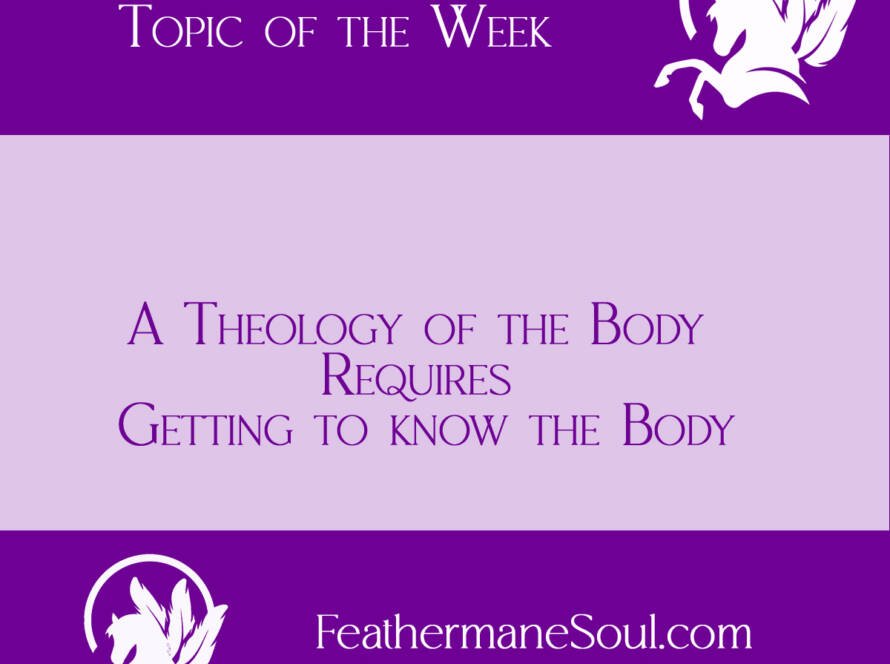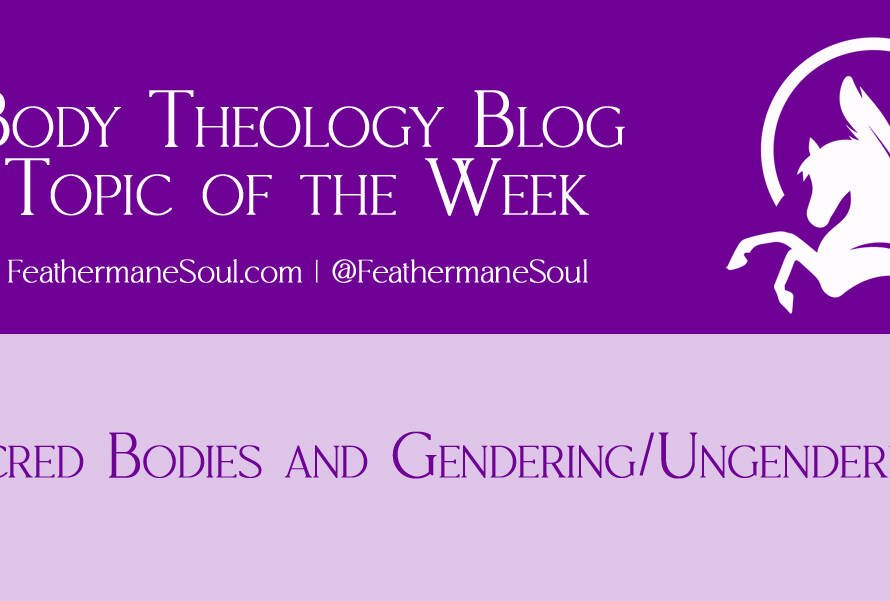According to the Miriam Webster dictionary, a social construct is an idea that has been created and accepted by society. (reference) Gender, along with the accompanying commonly accepted gender roles are social constructs, ones that we may not have even realized we’ve been socialized into until we start unpacking things. Social constructs are why our stories and our spiritual storytelling style is so important. If we’re not willing to look at our stories, then we may not understand just how much we’ve been shaped by social and cultural ideas that we don’t even hold.
Studying Embodied Theology Breaks Down Social Constructs
When we look at theology (our study of god/the divine) through our bodies, not just about our bodies or laid upon our bodies by outside forces, we begin to focus on lived experience. How we live our relationship with spirituality, how it affects our relationship to our bodies and others, and how others see us, is all part of an embodied experience because the focus is on our viewpoint and our bodies. For those with marginalized identities, especially layered ones, it becomes a way to look at the world. My experiences as a white, large-bodied, disabled, neurodivergent, queer person are going to be different from someone who is black, latino, Asian, or indigenous. Embodied theology allows each of us to state our truths and understand our stories as they are lived in our own bodies.
Social constructs come from outside of us. The idea of the American Dream, for example, is a social construct. When people are unable to access the American Dream, others are quick to tell them that it’s their fault. They aren’t working hard enough or doing this or that, when the truth is that the world has fundamentally changed, the lived experiences of younger generations are different from those who are older, and the American Dream is much more difficult to attain. An embodied theology comes from inside of us, and so it is the person experiencing poverty or an unstable job market to speak up, to claim their truth, and say “this is what I’m experiencing” and have their lived experience be believed.
This work cannot be done in a vacuum. Theology cannot exist as a separate silo away from other disciplines, or siloed into one specific faith tradition. For theology to embrace the lived experience of everyone, it must be willing to look outside of itself, through an inter-faith and intersectional lens to give inherent dignity and worth to everyone’s lived experience. If we are truly to believe that we, along with everything else on this planet is divine, and to reconnect with our spirituality, then we must understand that if we are embodied, then others are too.
It gets sort of trippy when you start to realize that a lot of what we take for granted in our society, and indeed are currently fighting over and using to deny people dignity, is all a social construct. Authentic and embodied living demands that we question this. It demands that we look beyond social constructs to see who each of us really is and what our lived experience is like.


